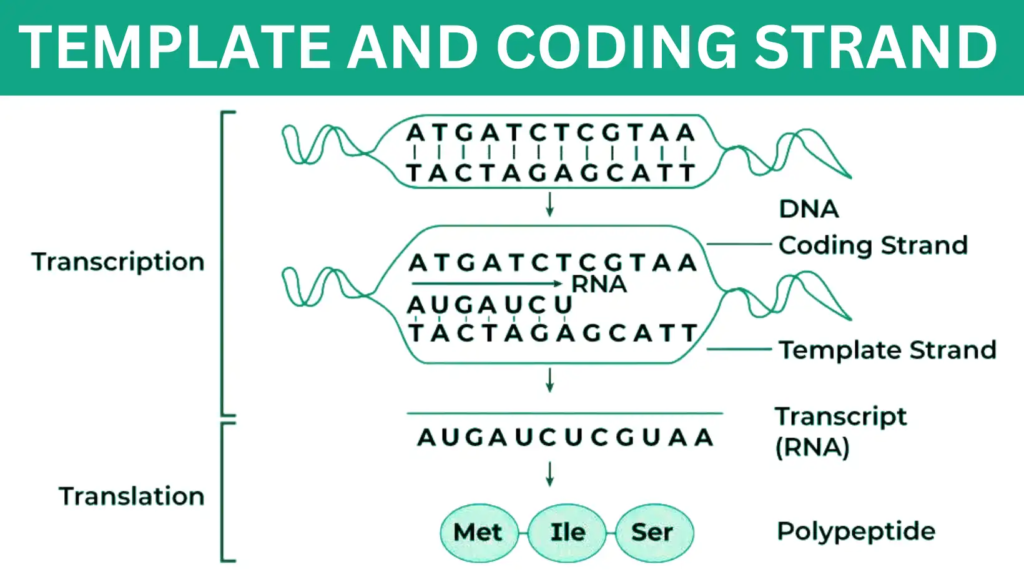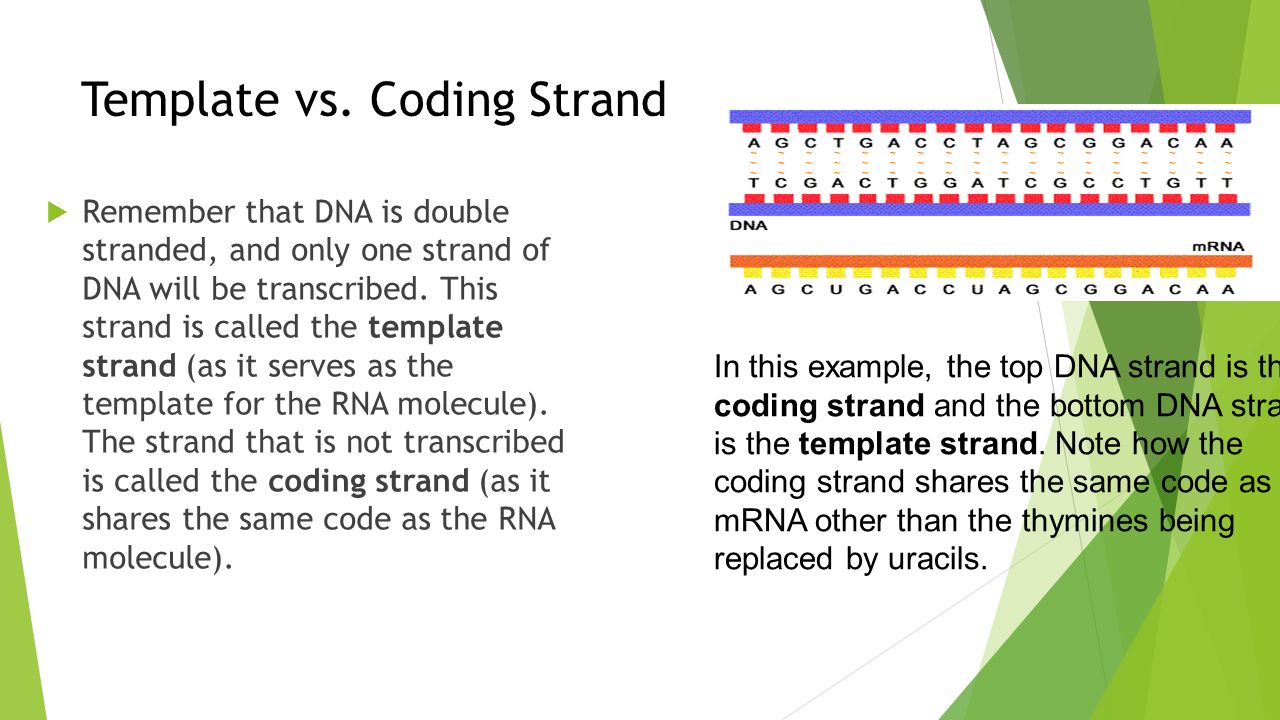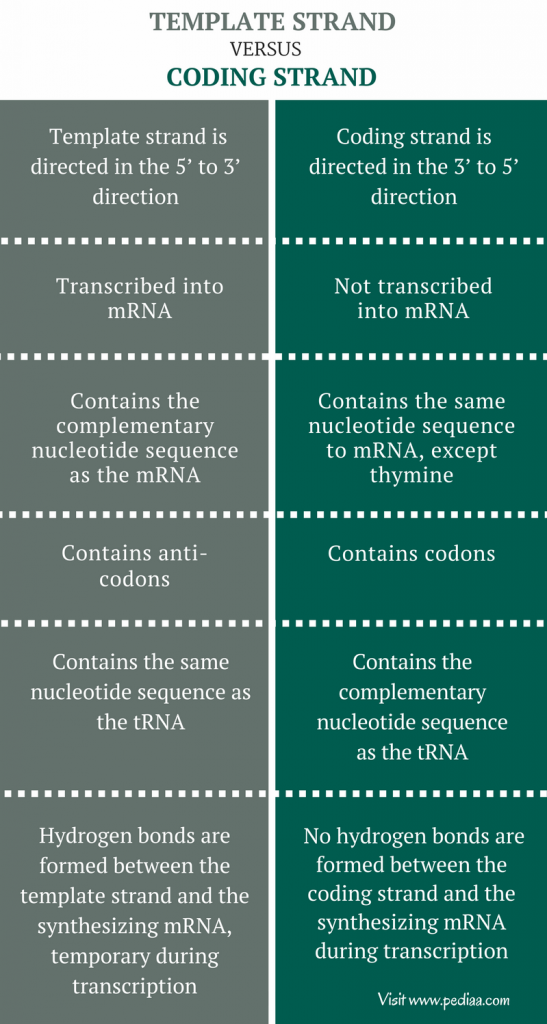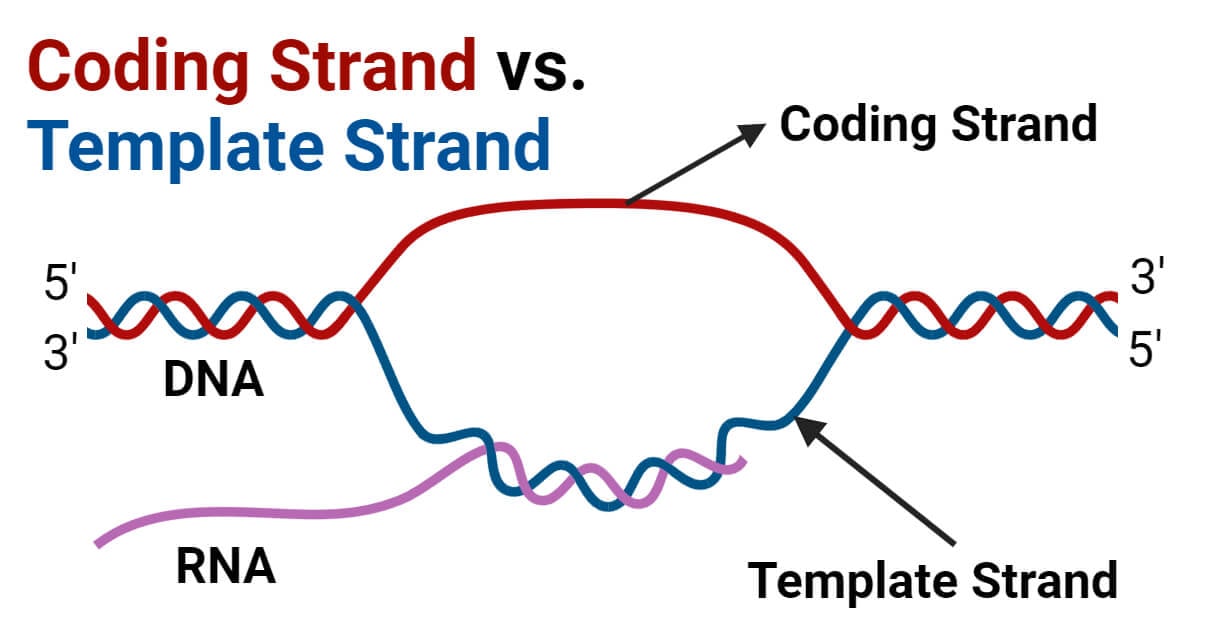Is The Template Strand The Coding Strand
Is The Template Strand The Coding Strand - It is also known as sense strand (plus. The term coding strand is not appropriate because the. Web on the other hand, the template strand, also known as the antisense strand, serves as a template for rna synthesis during transcription. As the rna polymerase moves along the template strand in 3′→ 5′ direction, the rna chain grows in 5′→ 3′ direction. When referring to dna transcription, the coding strand (or informational strand ) is the dna strand whose base sequence is identical to the base sequence of the rna transcript produced (although with thymine replaced by uracil). Cells decode mrnas by reading their nucleotides in groups of three, called codons. Web the template strand is one of the dna strands whose base sequence helps in building mrna through complementary base sequencing. Web the template strand, a fundamental component of dna, is pivotal in the intricate process of mrna synthesis, facilitated by the principle of complementary base. Web in transcription, a region of dna opens up. Web the template strand comprises nucleotide sequences which are complementary to these present in each the transcribed mrna and the coding strand. It is also known as sense strand (plus. Template strand or “ antisense. Here are some features of codons: Web it is also called (+) strand, or nontemplate strand. Web the template strand of dna is the strand that is used during transcription to produce rna. The coding strand = sense strand, both of which are the same as the resulting mrna (with thymine replacing uracil). Web template for the mrna transcript of a gene meaningful, but unusual terminology; Web transcription is performed by enzymes called rna polymerases, which link nucleotides to form an rna strand (using a dna strand as a template). It is also. The template strand acts as a base for mrna transcription. So that means that the. Identify the key steps of transcription, the function of. Web the template strand comprises nucleotide sequences which are complementary to these present in each the transcribed mrna and the coding strand. It is complementary to the coding strand of dna for the target gene. Web the term template strand is still appropriate because one of the dna strands is used as a template to make the rna. Web template for the mrna transcript of a gene meaningful, but unusual terminology; Web it is also called (+) strand, or nontemplate strand. Web the coding strand determines the correct nucleotide sequence of mrna. The template strand. Web the template strand of dna is the strand that is used during transcription to produce rna. The template strand acts as a base for mrna transcription. Web the term template strand is still appropriate because one of the dna strands is used as a template to make the rna. Here are some features of codons: Web it is also. Most codons specify an amino acid. Web the template strand of dna is the strand that is used during transcription to produce rna. Web the term template strand is still appropriate because one of the dna strands is used as a template to make the rna. Cells decode mrnas by reading their nucleotides in groups of three, called codons. The. Here are some features of codons: As the rna polymerase moves along the template strand in 3′→ 5′ direction, the rna chain grows in 5′→ 3′ direction. It runs in the 3′ to 5′ direction, which is opposite to the direction of the coding strand and the mrna. Most codons specify an amino acid. The term coding strand is not. As the rna polymerase moves along the template strand in 3′→ 5′ direction, the rna chain grows in 5′→ 3′ direction. Web transcription is performed by enzymes called rna polymerases, which link nucleotides to form an rna strand (using a dna strand as a template). The template strand acts as a base for mrna transcription. This template strand is called. Web the template strand of dna is the strand that is used during transcription to produce rna. The term coding strand is not appropriate because the. Web in transcription, a region of dna opens up. The template strand of dna plays a crucial role in the synthesis of mrna through complementary base pairing. Most codons specify an amino acid. Here are some features of codons: Web the template strand is one of the dna strands whose base sequence helps in building mrna through complementary base sequencing. This template strand is called the noncoding strand. Its counterpart, the antisense strand, guides the creation of a complementary rna strand during transcription. It is complementary to the coding strand of dna for. Web the coding strand determines the correct nucleotide sequence of mrna. One strand, the template strand, serves as a template for synthesis of a complementary rna transcript. Most codons specify an amino acid. Web in transcription, a region of dna opens up. Here are some features of codons: It is complementary to the. The template strand of dna plays a crucial role in the synthesis of mrna through complementary base pairing. Web transcription is performed by enzymes called rna polymerases, which link nucleotides to form an rna strand (using a dna strand as a template). So that means that the. Web either dna strand can be a template. Web the dna strand known as the template strand serves as a blueprint for the production of rna, whereas the coding strand is the other strand. The term coding strand is not appropriate because the. It is also known as sense strand (plus. Web template for the mrna transcript of a gene meaningful, but unusual terminology; Identify the key steps of transcription, the function of. It runs in the 3′ to 5′ direction, which is opposite to the direction of the coding strand and the mrna.
Difference Between Template and Coding Strand

Difference Between Template And Coding Strand

IMP Coding (Sense) vs Template (AntiSense) Strands Biology activity

Template Strand Vs Coding Strand Understanding The Difference GRAPHICOLD

Difference Between Template and Coding Strand Compare the Difference

Difference Between Template and Coding Strand Definition

Coding Strand vs. Template Strand 6 Key Differences

Chapter The Code — The Biology Primer

Template and coding strand targeting of spacers. A Schematic

Template and coding strands of DNA YouTube
Web The Strand Of Dna From Which Mrna Is Formed After Transcription Is Known As The Template Strand Or The Antisense Strand.
Web It Is Also Called (+) Strand, Or Nontemplate Strand.
The Coding Strand = Sense Strand, Both Of Which Are The Same As The Resulting Mrna (With Thymine Replacing Uracil).
Web The Term Template Strand Is Still Appropriate Because One Of The Dna Strands Is Used As A Template To Make The Rna.
Related Post: